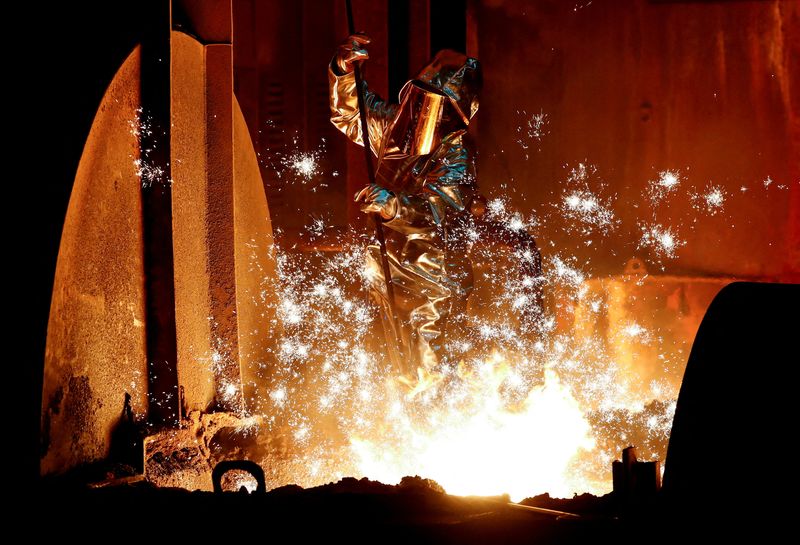BERLIN (Reuters) -German industrial production rose for the fifth straight month in February, likely the last increase in a streak economists do not see continuing once the war in Ukraine is reflected in data.
The Federal Statistics Office said industrial output rose 0.2% on the month after a downwardly revised increase of 1.4% in January. A Reuters poll had pointed to output remaining unchanged in February.
The Economy Ministry said that the production gap caused by shortages, making it difficult to fill orders, was unlikely to be closed any time soon due to the uncertainty caused by the war.
"It can be assumed that the war will initially slow down the recovery of industrial activity," the ministry said.
The data was "sending the last signal of what the German economy could have looked like had the war in Ukraine not happened", said ING Economics' Carsten Brzeski, who warned that the outlook for the German economy was now less than rosy.
His view was echoed by German businesses, with morale plummeting in March as companies worried about rising energy prices, driver shortages and the stability of supply chains because of the war in Ukraine, pointing to a possible recession in future.
"The burgeoning optimism of February collapsed as a result of Russia's attack on Ukraine," said Klaus Wohlrabe, head of surveys at the ifo Institute, adding that uncertainty was also pervasive among microenterprises and solo self-employed people.

Last week, government economic adviser Volker Wieland said the risk of a recession in Germany due to the war in Ukraine was substantial, adding Germany was also set back by the fact it still had not digested the impact of the COVID-19 pandemic.
German annual inflation rose to its highest in more than 40 years in March as prices of natural gas and oil products soared following the Russian invasion of Ukraine.